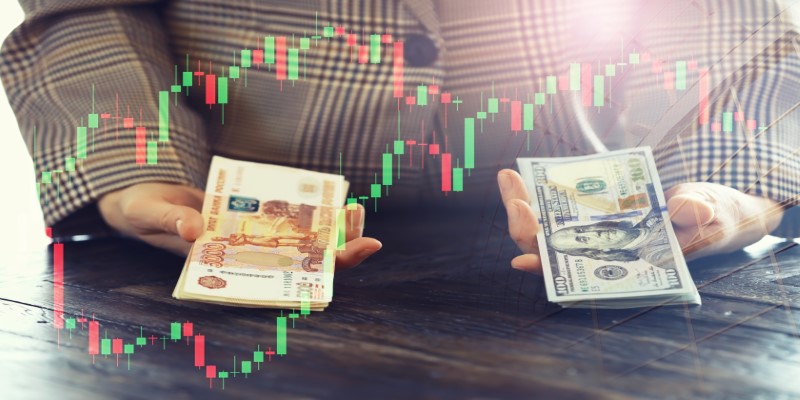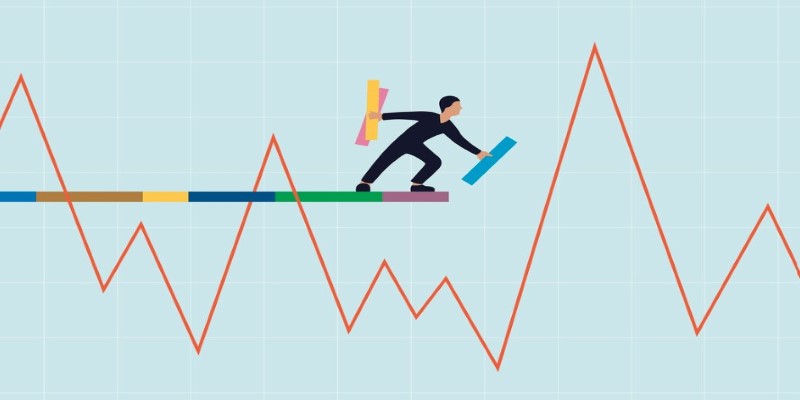Exchanges are an integral part of our daily lives, operating silently behind many transactions we often take for granted. Whether it's trading goods, currencies, or financial securities, exchanges provide a structured platform where buyers and sellers interact under established rules. While financial exchanges often dominate discussions, the concept extends far beyond the stock market.

From currency exchanges to barter systems, exchanges play a vital role in facilitating smooth trade, enabling price discovery, and ensuring fair transactions. This article explores the fundamentals of exchanges, their types, and practical examples that illustrate their significance in both traditional and digital economies.
At its core, an exchange is a marketplace where buyers and sellers come together to trade goods, services, or financial instruments. Exchanges exist to make transactions easier by offering a centralized location (physical or digital) where participants can meet, negotiate, and agree on terms. The foundation of an exchange lies in trust, transparency, and agreed-upon rules, ensuring that trades occur under consistent and fair conditions. The concept of exchanges has been around for centuries, evolving from simple barter systems to highly sophisticated digital platforms.
Exchanges are not limited to physical commodities or financial assets; they can involve intangible items such as data, ideas, and intellectual property. The presence of an exchange simplifies the trading process by offering liquidity, reducing transaction costs, and establishing market prices through supply and demand dynamics.
Exchanges can be broadly categorized based on what is being traded. Below are the primary types of exchanges, each with its unique function and relevance.

Financial exchanges are the most well-known, involving the trading of assets like stocks, bonds, and options. Platforms such as the New York Stock Exchange (NYSE) and London Stock Exchange (LSE) provide a regulated environment for investors, ensuring transparency and efficient price discovery. Recent innovations like electronic trading and algorithms have made these exchanges faster and more accessible.
Currency exchanges, also known as forex markets, enable trading of different currencies essential for global trade and finance. These decentralized markets include participants like banks, governments, and individuals, operating 24/7 across various time zones. This constant operation ensures continuous trading and liquidity, making forex a vital component of the international financial landscape.
Commodity exchanges enable the trading of goods like oil, gold, and agricultural products. The Chicago Mercantile Exchange (CME) is a prime example, offering standardized contracts for buyers and sellers. These exchanges help stabilize prices and manage risks through futures and options trading.
Barter exchanges involve trading goods or services without money. While traditional, barter is still relevant today, especially for small businesses. Digital platforms have even modernized bartering, allowing businesses to trade services like marketing or consulting.
Regardless of the type, exchanges typically follow a standard operational model designed to facilitate smooth transactions. First, exchanges create a marketplace by gathering buyers and sellers. Then, they set rules for trading, which include how orders are placed, matched, and settled. Modern exchanges rely heavily on electronic trading systems that automatically match buyers and sellers based on price and volume preferences.

Price discovery is a key function of any exchange, where market prices are determined based on supply and demand dynamics. This is particularly visible in financial and commodity exchanges, where prices are continuously updated to reflect new information.
Another vital aspect is liquiditythe ease with which assets can be bought or sold. Exchanges improve liquidity by centralizing a large pool of buyers and sellers, making it easier to enter or exit positions without significant price disruptions.
To better understand the role of exchanges, lets look at some practical examples.
The New York Stock Exchange (NYSE): As one of the worlds largest financial exchanges, the NYSE facilitates billions of dollars in stock trades daily. It operates through a combination of electronic trading and floor trading, offering an efficient platform for investors to buy and sell shares in listed companies.
Forex Market: The foreign exchange market is a decentralized global network where currency trading occurs. Its crucial for international trade, allowing businesses and governments to convert currencies for imports, exports, and other financial needs.
Chicago Mercantile Exchange (CME): A leader in commodity trading, the CME handles contracts for everything from energy products to agricultural goods. The exchange provides futures contracts that allow participants to hedge against price fluctuations.
Local Barter Platforms: In communities and small businesses, barter systems can still be effective. For instance, a local business might trade services like marketing in exchange for office supplies. Online barter platforms also facilitate these types of trades between businesses.
Exchanges, whether physical, digital, or decentralized, are the backbone of trade in any economy. From facilitating the trading of financial assets to enabling international currency exchanges, they bring buyers and sellers together under an organized system. As technology advances, exchanges continue to evolve, offering new opportunities and facing new challenges. Whether you're trading stocks, currencies, or even services, understanding how exchanges work and their different types can provide valuable insights into how global commerce operates.
In essence, exchanges represent the dynamic environments where supply meets demand, providing structure, transparency, and fairness in a world driven by trade. Whether through a stock market, a forex platform, or even a simple swap, exchanges remain central to economic activity worldwide.

By Georgia Vincent/Sep 04, 2024

By Sean William/Sep 03, 2024

By Noa Ensign/Sep 04, 2024

By Alison Perry/Sep 04, 2024

By Verna Wesley/Sep 03, 2024

By Maurice Oliver/Aug 30, 2024

By Sid Leonard/Aug 26, 2024

By Gabrielle Bennett /Sep 04, 2024

By Rick Novak/Jul 13, 2024

By Rick Novak/Jul 11, 2024

By Juliana Daniel/Sep 03, 2024

By Verna Wesley/Aug 27, 2024